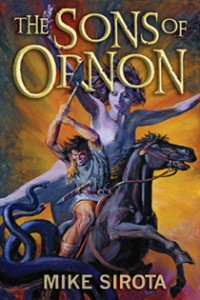 November is now upon us, and for many writers that means NaNoWriMo—or how many words can you write TODAY, or THIS WEEK, or THIS MONTH? The point I attempt to hammer home to ALL writers, novice and otherwise, remains valid in any month or year, and is contained in the above title. So once again here are my thoughts, as expressed in this annual post.
November is now upon us, and for many writers that means NaNoWriMo—or how many words can you write TODAY, or THIS WEEK, or THIS MONTH? The point I attempt to hammer home to ALL writers, novice and otherwise, remains valid in any month or year, and is contained in the above title. So once again here are my thoughts, as expressed in this annual post.
Okay, this week I’m going to be a curmudgeon—something that I do quite well, actually. There are organizations, conferences, workshops—whatever—that stress sitting down with your laptops on fire and writing novels just as fast as you can. Write 5,000 words over a weekend. Or better still, write 50,000 words in thirty days. As a professional novelist and writing coach of a thousand years, I disagree with this method of helping writers, or wannabe writers, explore their creativity.
For starters, the reason I’m bringing this up right now is that this month has been designated National Novel Writing Month by a nonprofit organization of the same name—though better known as NaNoWriMo. They urge participants to write a “50,000-word novel” during the thirty days of the month, with a specific deadline of “11:59 p.m. on November 30th.” (Forget the fact that 50,000 words do not normally constitute a novel.)
WHO NEEDS A STINKING DEADLINE?
Consider this: Can you put a deadline on creativity? Can you put a word count goal on imagination? I don’t think so. Deadlines for novelists should be reserved for those few successful ones whose publishers want their next bestsellers written just as quickly as possible. For the rest of us, WHAT we write is far more important than HOW FAST we write it.
Being on social media I’m linked with many writers—published, self-published, unpublished, or otherwise. Quite a few proudly list their word count for the day, which does not impress me at all. You wrote 2,500 words today—so what? Was the scene any good? I would rather see a solid scene of 500 words that took some time and thought than a scene five times as long that will require extensive editing and revising down the road. To simplify, I reiterate the title of this post: write well, not fast.
 A NUMBERS GAME
A NUMBERS GAME
My opinion on this, to tell the truth, has evolved over time. I used to keep track of my daily word count—even before I had a computer that did it for me. That had to do partly with needing to know if I was staying within a publisher’s parameters of 70,000 words or whatever. But I’d be lying if I said that it wasn’t important to me back then.
If numbers impress you, then how about this? I wrote a 72,000-word sword & sorcery novel, The Twentieth Son of Ornon, in twenty days. Over a period of about ten years back in the day I wrote seventeen or eighteen novels, most of which were published.
So what did that mean? It meant that I wrote fast; it didn’t mean that I wrote well.
Sure, I wrote the first draft of The Twentieth Son of Ornon in twenty days, but subsequent drafts to polish the work took almost two months more. Then, the publisher had me rewrite the opening; another couple of weeks. And decades later, when I reissued the book as The Sons of Ornon, I thought the original writing was crap and did a serious makeover on the book. Ditto all of the books in that ten-year span.
I’ve worked with hundreds of writers over the years, and I have never told any of them that they write too slowly. I have only cared about the final product. Writers have come to me with their first novels that they’ve worked on for five years, six years, even longer. Others could pump out a 90,000-word first draft in six months or less. Some were quite proud of the latter—until I found enough wrong with their story to require another six months to a year of revisions before they got it right.
GETTING STARTED
These well-meaning organizations that emphasize word count and deadlines profess that they want to jump-start writers. To me, the risk is great that the opposite will happen. A person has been thinking about writing a book for years but hasn’t been able to start. Give them a deadline, and a word count minimum, and there could come a time—early in the program—when their frustration kicks in and they walk away from it, possibly forever. This seems self-defeating.
I’ve taught basic novel-writing classes at various educational institutions in Southern California, which were often attended by those still THINKING about writing. They have great ideas, or life experiences, whatever. So why haven’t they begun? Because they have jobs, and a family, and life is hectic, and 75,000-80,000 words seem so daunting, and (fill in the excuse du jour).
What I tell them is this: THINK SMALL. Write one page a day. A double-spaced manuscript page is approximately 250 words, THE SAME NUMBER OF WORDS YOU SEE HERE IN RED. If you do this every day, in about ten months you’ll have completed the first draft of a 75,000-word novel. TEN MONTHS—isn’t that doable?
 For just about all of them, the answer was yes. And while some stuck to that exact formula, others found that a page a day just didn’t cut it when they were into a scene, and the 250 words grew to 350, then 500, and more. Some of my most successful writers began this way and now have multiple books published.
For just about all of them, the answer was yes. And while some stuck to that exact formula, others found that a page a day just didn’t cut it when they were into a scene, and the 250 words grew to 350, then 500, and more. Some of my most successful writers began this way and now have multiple books published.
YOUR THOUGHTS, PLEASE
As my Parrothead guru once sang, that’s my story and I’m stickin’ to it. Seriously, I’m for anything that will get a person with a potential great story started writing. I just don’t feel that deadlines and word counts are the way to go.
I welcome your comments on this, pro and con. Happy writing!
